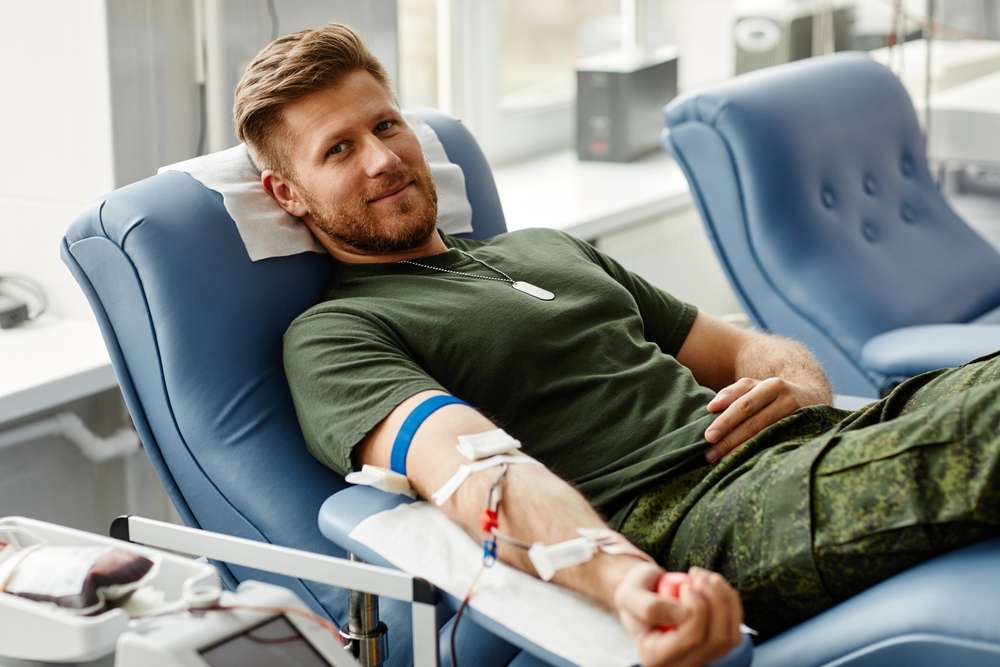Give life Help families grow Become a donor today
In a world where countless couples yearn to start families, the gift of life through donation can be truly transformative. Becoming a donor is a profound way to help those struggling with infertility realize their dreams of parenthood. This article explores the process of donation, its impact on families, and how you can make a difference in the lives of others through this selfless act.

What does it mean to become a donor?
Becoming a donor involves offering your genetic material to help individuals or couples who cannot conceive on their own. This can include egg donation for women or sperm donation for men. The process typically involves medical screenings, psychological evaluations, and legal considerations to ensure the well-being of all parties involved. By choosing to donate, you’re providing hope and the possibility of life to those who may have exhausted other options in their journey to parenthood.
How can your help make a difference for childless couples?
Your decision to become a donor can have a profound impact on the lives of childless couples. For many, the inability to conceive naturally can be emotionally devastating and financially draining. By offering your genetic material, you’re providing these couples with a chance to experience the joys of parenthood and create the family they’ve always dreamed of. Your generosity can help alleviate the pain of infertility and bring immeasurable happiness to those who have been struggling to conceive.
What is the process of donating through an accredited center?
Donating through an accredited center ensures a safe, ethical, and professional experience for both donors and recipients. The process typically begins with an initial consultation and screening to determine your eligibility. This is followed by a series of medical tests to assess your health and genetic background. Psychological evaluations are also conducted to ensure you’re mentally prepared for the implications of donation. Once cleared, you’ll undergo the donation procedure, which varies depending on whether you’re donating eggs or sperm. Throughout the process, accredited centers prioritize your privacy and well-being, providing support and guidance at every step.
How is donor privacy and security maintained?
Accredited donation centers place a high priority on maintaining the privacy and security of their donors. Strict confidentiality protocols are in place to protect your personal information. Many centers offer anonymous donation options, where your identity is not disclosed to the recipients. However, some centers also provide the option for known donation if all parties agree. All legal and medical documents are kept secure, and any communication between donors and recipients is typically facilitated through the center to maintain privacy. This commitment to discretion allows you to donate with peace of mind, knowing your personal information is protected.
What are the emotional rewards of becoming a donor?
While the physical aspects of donation are important, the emotional rewards can be equally significant. Many donors report feeling a profound sense of fulfillment knowing they’ve helped create life and bring joy to families struggling with infertility. The act of donation can be empowering, allowing you to make a lasting impact on the world. Some donors also find that the experience gives them a deeper appreciation for their own fertility and the gift of life. It’s important to note that while the emotional benefits can be substantial, counseling services are often provided to help donors process any complex feelings that may arise during or after the donation process.
How can you become part of something big and support new beginnings?
Becoming a donor is more than just a medical procedure; it’s an opportunity to be part of a larger movement supporting family creation and new beginnings. Many donation centers offer programs that allow donors to connect with others who have gone through the process, creating a community of individuals committed to helping others build families. Some centers also organize events or support groups where donors can share their experiences and motivations. By becoming a donor, you’re not just helping one family, but potentially contributing to a network of support and hope for those struggling with infertility.
To give you an idea of the impact of donation, here’s a comparison of different types of donations and their potential outcomes:
| Donation Type | Potential Impact | Average Success Rate | Typical Recipient Wait Time |
|---|---|---|---|
| Egg Donation | 1-2 families helped per donation cycle | 50-60% live birth rate | 6-12 months |
| Sperm Donation | Multiple families helped over time | 15-20% success rate per cycle | 1-3 months |
| Embryo Donation | 1 family helped per donation | 40-50% live birth rate | 3-6 months |
Prices, rates, or cost estimates mentioned in this article are based on the latest available information but may change over time. Independent research is advised before making financial decisions.
In conclusion, becoming a donor is a profound way to give the gift of life and help families grow. Your decision to donate can make a significant difference in the lives of childless couples, offering them hope and the chance to experience parenthood. By choosing to donate through accredited centers, you ensure a secure and ethical process that protects your privacy while supporting others’ dreams. As you consider this opportunity, remember that your contribution goes beyond the physical act of donation – it’s about being part of something larger, supporting new beginnings, and creating lasting positive change in the world.
The shared information of this article is up-to-date as of the publishing date. For more up-to-date information, please conduct your own research.
This article is for informational purposes only and should not be considered medical advice. Please consult a qualified healthcare professional for personalized guidance and treatment.






